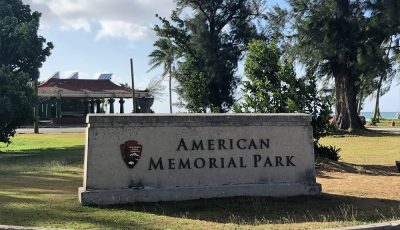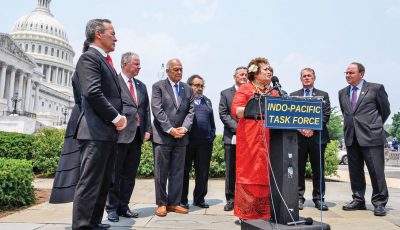Tsonggo Zhongguo
The first word in our title is our childhood playground word for “monkey,” the second is the name formally used for “China”: Zhong = middle, Guo = realm. The first was used as an insult. Both share similar pronunciations. I was too young to notice the racist nature of the slur of the first word until later when I discovered that the Malay word “monkey” (unggoy) is not even close to the one we were using. Tsonggo was definitely pejorative against the Chinese! The prejudice was deep. “What are you? Intsik (Chinese)?” was mother’s common comment when we were not in proper attire or behavior.
The recent anti-Chinese riots in Vietnam, triggered by the Vietnamese government’s protests in the continuing oil drilling by China on Xisha Island, abetted by our meddling in the affair by declaring the Chinese oil drilling move as “destabilizing,” has revealed dormant currents in the area bigger than “sovereignty” issues between countries surrounding the disputed islands in the South China Sea (now labeled the Luzon Sea in the Penguin 2012 World Map edition).
The rioting last week was more far south of Hanoi, touching on the whole of Sinophobe Vietnam; business casualties (China mainlanders, Taiwanese, and Korean) sent foreign personnel scampering out of the country with many Chinese nationals crossing into Kampuchea; tour operators cancelled advertised visits to Vietnam, adding to Vietnam’s already battered economy.
Our reflection is not on China-Vietnam relationship for that is a close but strained one (Vietnam in Chinese is Yuenan, next to the southern Chinese provinces of Yunnan and Hainan, get the picture?) since the Han began a millennial-long Chinese reign by the Gulf of Tonkin before the local royalty took over, lasting another millennium until the French took interest in Indochina, along with European powers who carved out the region. Uncle Sam was a grease-hand Johnny-come-lately, sights on the South China Sea oil. Ho Chi Minh had no shortage of targets for his cross hairs.
It is the anti-Chinese phenomenon in the region that got triggered in Vietnam as China’s presence in the region and around the world becomes more prominent. We are familiar with the genocidal Sino phobia of Indonesia after WWII. Malaysia fared better but not by much, Singapore’s strength has the Sinophobe impulse to thank for. The Chinese in the Philippines were ghettoed by the Spaniards, keeping Binondo across the Pasig to the Walled City of Intramuros at bay, forcing those who wish to be integrated to intermarry or forsake their Chinese names (Cojuangco, remember?).
Thailand is experiencing a racial divide as the Shinawatra brother-sister tandem represent the Sino face of Siam, accused of not respecting the monarchy that supports the revolt of the middle income and Malay “yellow shirts” against the “reds” whose north and northwest of Bangkok stronghold is empathetically close to Sino neighbors.
We need not detail historic Sino phobia around the world. Google the subject and one gets more than a page of gore. The “yellow terror” aka “yellow peril” as a media term accompanied the U.S. Chinese Exclusion Act of 1882, not yet 20 years after Chinese labor completed the rail into the Pacific. A labor leader is oft-quoted with a common view at the time, that “the superior whites had to exclude the inferior Asiatics, by law, or if necessary, by force of arms.” In the early 1900s, vigilante groups lynched Asians, much like blacks in the South. Hearst papers deliberately used “yellow peril” to refer to Asian Americans. The NY Times caricatured Filipinos as monkeys!
Boka Haram of Nigeria (Boka Haram means “anti-Western education,” thus the protest against girls in school) recently turned its sights on Chinese workers in the north corner of Cameroon bordering Nigeria, kidnapping 10 Chinese workers working in a state-supported infrastructure project.
It is not, however, solely a one-way street. Since Qin’s Shi Huang Di connected existing walls to protect the Hans from northern marauders that later made into the Great Wall, there has not been a shortage of the dynastic conduct of racial superiority characterizing the middle kingdom.
A recent survey shows that the Chinese public least trust Japan (wokau, the term for “bandit,” is still used to call Japanese citizens); followed by the Philippines that botched a rescue operation of HK tourists in Manila and refuses to apologize for it, let alone its legal anti-Chinese statutes; with the U.S. at third whose Immigration curtailed southern European and Asian migrants, and since Obama made his pivot turn from Afghanistan and Iraq to the Far East, to “contain” China if one reads why the military is entrenched in the CNMI; followed by Vietnam where evacuation of affected Chinese workers continues; and India, its rival for influence in Xizang, where the Dalai Lama is protected in exile.
Tsonggo Zhongguo will be here awhile, and with China leading the world in trade in a heightened profile as a national economy, the poor primates in the wild will get their undeserved share of insults!



























